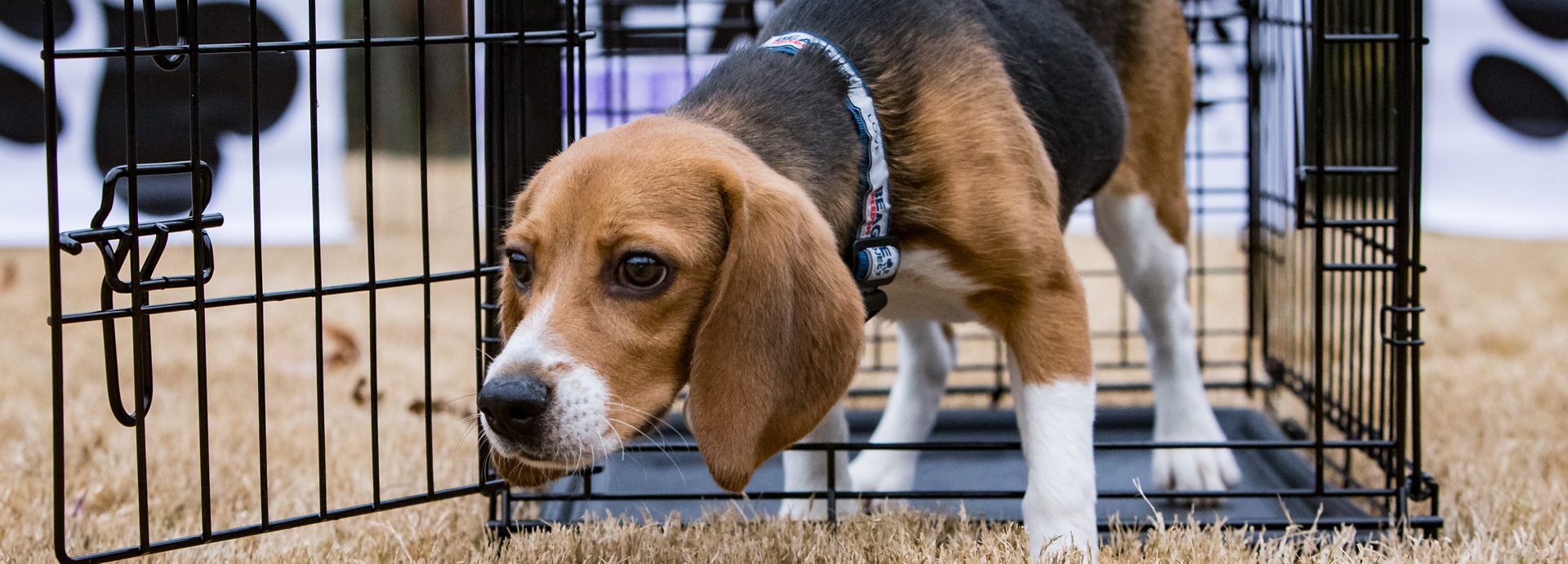COLUMBIA, MO (KSHB) — The University of Missouri acknowledges its researchers took part in a medical study that included wounding six beagle puppies before they were all euthanized.
The study was published in the medical journal Veterinary Ophthalmology on April 7.
It says six healthy, female beagle puppies (9-12 months) were wounded in their left corneas; three were then given an experimental drug and the other three received the control product without the acid.
The result of the study concluded the topical drug “did not accelerate corneal wound healing.” ‘Optimend Corneal Repair Drops’ is a product currently on the market for use only by veterinarians.
Beagle Freedom Project learned of the tests several months ago.
“We identified 179 dogs and cats at Mizzou used by the med school, for research purposes,” said Daniel Kolde, attorney for Beagle Freedom Project.
Beagle Freedom Project’s mission is to adopt beagles from universities and institutions after they have been through medical testing. They requested public records from the animals under testing at Mizzou last year under the Sunshine Law but were met with a large bill.
“They wouldn’t give us any records until we gave them $82,222 and some change,” said Kolde.
Beagle Freedom Project then sued the university.
The University of Missouri sent KSHB-TV this statement regarding the tests:
Without animal research, we would not be able to answer some of the most important medical questions.
Researchers at the University of Missouri are working to develop painless or non-invasive treatments for corneal injuries to the eyes of people and dogs, including search and rescue dogs and other service animals. Common injuries to the cornea can include force trauma, chronic defects and surgical procedures, and can lead to blindness. Since dogs share similar eye characteristics with people, they are ideal candidates for corneal studies, and veterinarians have provided vital information to physicians and veterinarians treating corneal injuries – which ultimately benefit other dogs, animals and humans, including many of our U.S. veterans who have sustained corneal injuries while defending our country.
All studies were performed in accordance with the Association for Research in Vision and Ophthalmology (ARVO) Statement for the Use of Animals in Ophthalmic and Vision Research (as seen here) and were approved by the MU Institutional Animal Care and Use Committee. The animals were treated humanely and every effort was made to ensure dogs were as comfortable as possible during the tests to study the effectiveness of the new drug treatment.
Animal research is only done when scientists believe there is no other way to study the problem, and our researchers respect their research animals greatly and provide the utmost care.
Research in vision and ophthalmology improves the quality of life for both animals and humans.
When asked if the dogs were euthanized following the study, the university did not respond. However, an email obtained from Mizzou’s Mary Jo Banken to Beagle Freedom Project says the animals were put down.
The email partially reads, “The dogs were humanely euthanized, corneas were removed and samples were stored for further research.”
Original Article: NBC News

